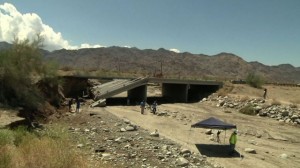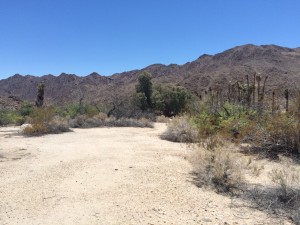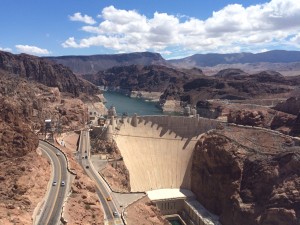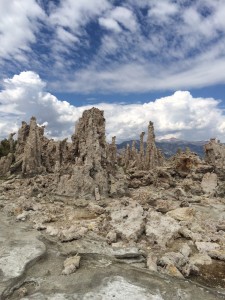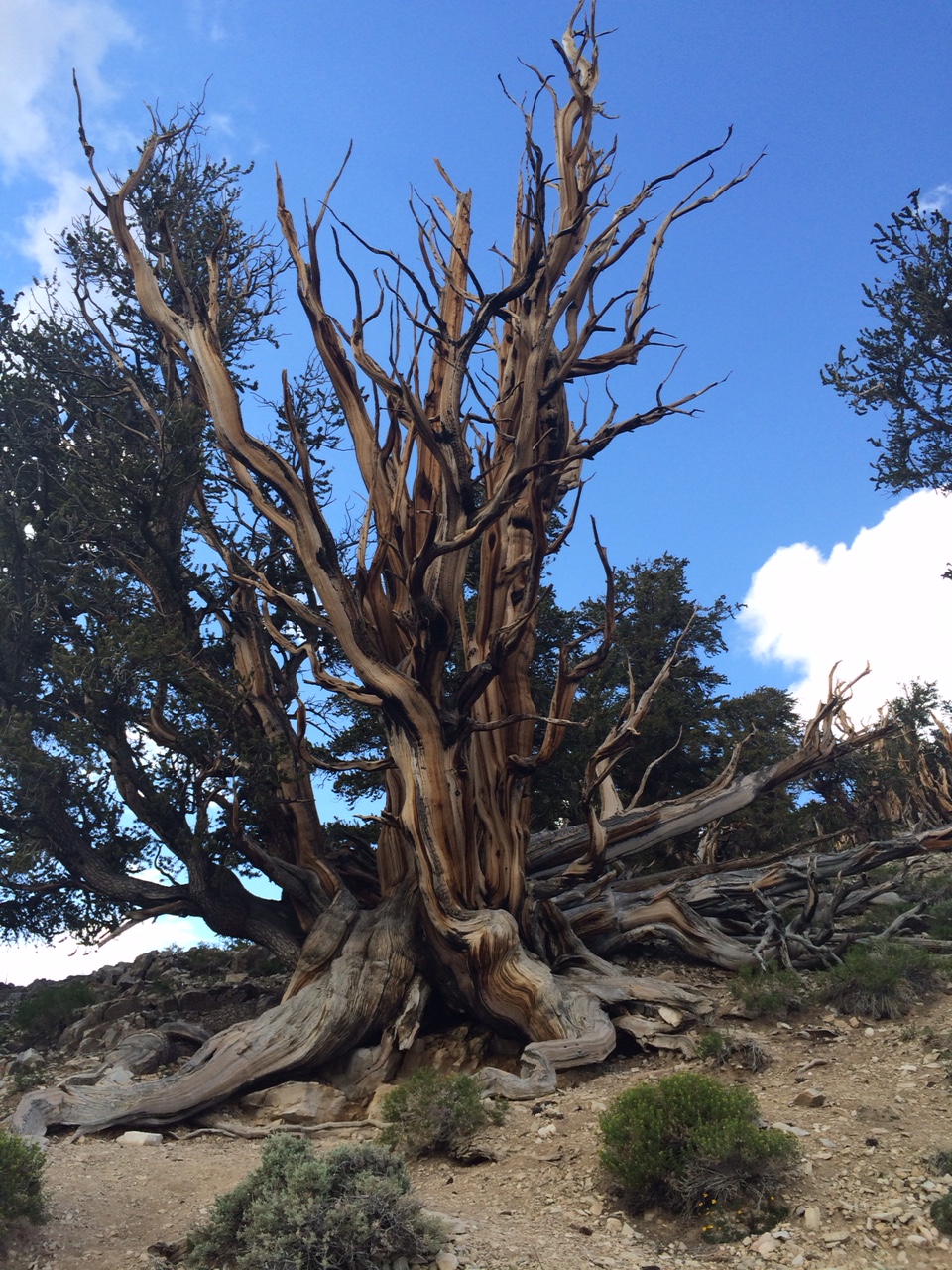I’m just back from a vacation road trip through Southern California, Arizona, Nevada and the Sierra Nevada. Along the way, I saw evidence of our progress in transitioning to a cleaner economy, but also the impacts of climate change.
For starters, we were lucky to make it through the Southern California Desert before a freak July rainstorm destroyed another decaying piece of infrastructure — a highway bridge over the Texas Wash near Desert Center. Interstate 10 is now closed through that area. Hard to imagine a more powerful symbol of both our need for transportation investments and the likely future of severe climate impacts.
In that same area, we off-roaded to a beautiful campground at Corn Springs, a major stopoff and village site for local Native Americans and a very interesting canyon beyond the desert floor. The spring is now dry, presumably from dewatering related to local mining.
Meanwhile, we saw solar panels galore, including major solar installations north of Interstate 10. It seemed like almost every emergency roadside phone stand had a solar panel above it, evidence of the now-cheap cost of panels.
For electric vehicles, we didn’t see many, other than a few Teslas in Mammoth Lakes. It will be a while before remote areas of the U.S. are truly reachable and workable for EVs.
For further climate impacts related to drought, we visited Boulder (Hoover) Dam, and saw the ridiculously low lake level. Mono Lake also has not risen anywhere near the shoreline elevation required by the 1994 State Water Resources Control Board decision to restore the lake.
But if these July rains keep up, maybe the rain cycle will be reversing in California and throughout the west. Not that that would be a good thing for the climate and ecology here.
Finally, we visited the ancient bristlecone pine trees — the oldest living things on Earth — in the White Mountains past the eastern Sierra Nevada. One grove featured trees older than 4000 years. Always nice to put things into perspective. Let’s hope people will still be able to visit these trees in another 4000 years.
Leave a Reply
You must be logged in to post a comment.

